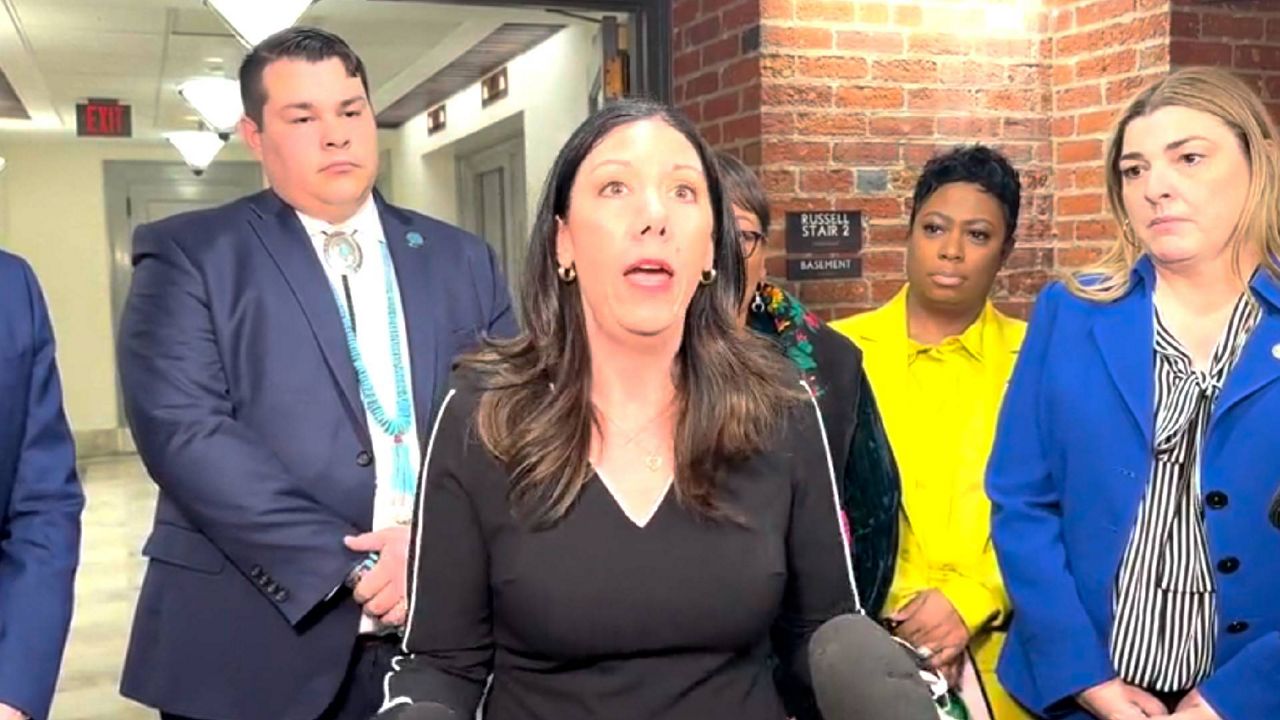Advocates from the St. Louis region returned to Washington, D.C. this week, pressing Congress to reauthorize and expand a federal program set to expire later this year that provides payments to victims of radiation exposure.
Efforts to expand the Radioactive Exposure Compensation Act or RECA Trust Fund to include Missourians in 20 ZIP codes in the St. Louis area and other regions nationally failed when the provision was removed from the National Defense Reauthorization Act late last year. Sen. Josh Hawley, R-Mo., told reporters Thursday he’ll try to add it as an amendment to an aid bill that passed a procedural vote Thursday for $96 billion in military support for Ukraine, Israel and Taiwan.
He said he hasn’t received assurances from Senate leadership that amendments will be allowed for future votes on the bill.
Advocates, including State Reps. Tricia Byrnes, R-Wentzville, Chantelle Nickson-Clark, D-Florissant, and the co-founders of JustMoms STL, Dawn Chapman and Karen Nickel, made the rounds at the U.S. Capitol for the second and third time over the last six months, trying to make the case that the federal government should pay the medical costs and survivor’s benefits for families which have been exposed to nuclear radiation dating back to the post-World War II era and the improper storage or disposal of waste that continued for decades.
“You know we’re doing it for our kids. This is not generations ago. This is happening to kids now. We want our kids fixed and we want no other kids to be harmed by the waste our government left behind in our back yards and in our schools,” Byrnes said.
“I am one of those people who are very ill. I could barely get out of bed this morning after being here all day yesterday walking these halls educating and pretty much begging people to listen to us. It’s difficult for us. It’s a financial hardship for us. We’re not asking for a lot. We’re just asking for help,” Nickel said.
Nickson-Clark spoke of being diagnosed with breast cancer twice, losing an aunt and a mother to breast cancer, a grandfather to pancreatic cancer and having a nephew with a cancerous brain tumor.
Chapman said the group was still hopeful, but angry, in part because legislative opponents to the RECA language’s inclusion in the National Defense Authorization Act said it needed to be paid for, something that isn’t being asked in the foreign aid spending.
“Would we be able to even consider packages to give foreign aid to any other country in the world had we lost World War II? Because we only won it because our communities sacrificed. My son who was born… he’s 18 years old he wasn’t alive for World War II, is a sacrifice of World War II. This is not a windfall. There is no pay for for the packages that are going to be considered. Why do poisoned people have to come up with the pay for,” she said.
It was not clear when the Senate would take the next vote on the military aid package, which would still need to pass the House. Hawley said his amendment would also add victims in Alaska, Tennessee and Kentucky who were not previously included in the bill.



